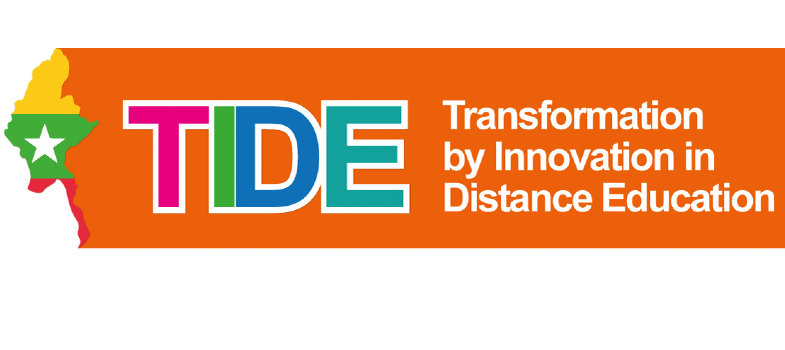What will I study in Step 6?
The table below lists the activities contained in this phase of the programme. It repeats the details on the type of activities involved, their learning outcomes, themes and their relationship to the programme learning outcomes. What follows are the individual assets that were used to support each of the named activities.
|
Part |
Activity name |
Activity type(s) |
Activity Learning Outcome(s) or Aims |
Academic Programme Learning Outcome(s) being addressed by this Activity |
Themes covered |
|
6.1 |
(online course) |
1.Assimilative 2.Finding and Handling Information
|
After studying this course, you should be able to: Identify the differences between teaching online and teaching in a face-to-face environment. Make informed decisions when choosing new tools and pedagogies for online teaching. Identify major benefits and challenges of teaching online. Understand the changing practices of educators as they make use of online opportunities such as social networks and open educational resources. Understand how to create and evaluate approaches to online teaching that are appropriate for you.
|
1.Explain the role of quality assurance and enhancement processes for providing a good quality distance learning experience for students 3. Evaluate the learning needs of students to help inform the design of teaching programmes
|
Distance Education; Learning Design; Professional Development |
|
6.2 |
Digital Literacy Frameworks in Use (webinar) |
Assimilative |
By participating in this webinar you should be able to: Define Digital Literacy. Understand digital literacy at The Open University (UK). Identify different digital literacy frameworks. Understand how digital and information literacy skills are taught. Assess the impact and evaluate digital literacy. |
1. Explain the role of quality assurance and enhancement processes for providing a good quality distance learning experience for students 2. Understand what the principles and practices of openness in education means for you and your institution in developing and sharing educational resources. 3. Evaluate the learning needs of students to help inform the design of teaching programmes
|
Distance Education; Learning Design |
|
6.3 |
Digital Badging & Assessment (webinar) |
Assimilative |
By participating in this webinar you should be able to: * Describe assessment at The Open University (UK) * Understand different benchmarking assessment practices. * Understand different student experiences of assessment. * Be able to interpret assessment analytics. Verify identity. * Understand the role of digital badges. |
1.Explain the role of quality assurance and enhancement processes for providing a good quality distance learning experience for students. 2.Understand what the principles and practices of openness in education means for you and your institution in developing and sharing educational resources. 3.Evaluate the learning needs of students to help inform the design of teaching programmes.
|
Distance Education; Open Technologies |
|
6.4 |
How to Design and Build a Quiz (webinar) |
1. Assimilative 4. Productive |
By participating in this webinar you should be able to: * Understand where to find guidance on building Moodle based quizzes. * Understand the purpose of online quizzes for learning. * Be able to write a good quiz question that tests understanding rather than memory. * Select appropriate quiz types for different purposes. * Configure a quiz on OpenLearn Create.
|
1.Explain the role of quality assurance and enhancement processes for providing a good quality distance learning experience for students. 3.Evaluate the learning needs of students to help inform the design of teaching programmes.
|
Open Education; Open Technologies |
|
6.5 |
Open Access Repositories to Support Distance Education in Myanmar (webinar) |
Assimilative |
By participating in this webinar you should be able to: *Describe what an open access repository is and have an awareness of where to find different repositories. *Understand the different approaches to implementing an open access repository in Myanmar.
|
2. Understand what the principles and practices of openness in education means for you and your institution in developing and sharing educational resources.
|
Open Education; Open Technologies |
|
6.6 |
Offline Access in Low Resource Settings: Raspberry PI and Mobile Moodle (webinar) |
Assimilative |
By participating in this webinar, you should be able to: *Understand what we mean by low resource settings and offline access *Appreciate why and when you should provide offline access. *Understand more about MyLibrary and its role in widening access to education in low resource settings. |
2. Understand what the principles and practices of openness in education means for you and your institution in developing and sharing educational resources
|
Open Education; Open Technologies |
|
6.7 |
Phase 3 OER Development Activity |
1. Assimilative 2. Finding and handling information 3. Communication 4. Productive 5. Experiential |
After completing the Phase 3 activity and assignment you should be able to: 1. Evaluate the relevant academic, pedagogic and technical aspects of an open educational resource (OER) and plan what aspects need to be added, taken away or adapted so that it could be used by students in your university. 2. Implement that plan to create an adaptation of that OER that could be used by students in your university. 3. Explain what you changed and why to others. |
1. Explain the role of quality assurance and enhancement processes for providing a good quality distance learning experience for students 2. Understand what the principles and practices of openness in education means for you and your institution in developing and sharing educational resources 3. Evaluate the learning needs of students to help inform the design of teaching programmes 4. Design and develop open educational resources (OER), whether online or in a physical form, that teach and assess learning outcomes |
Open Education; Distance Education; Learning Design |
